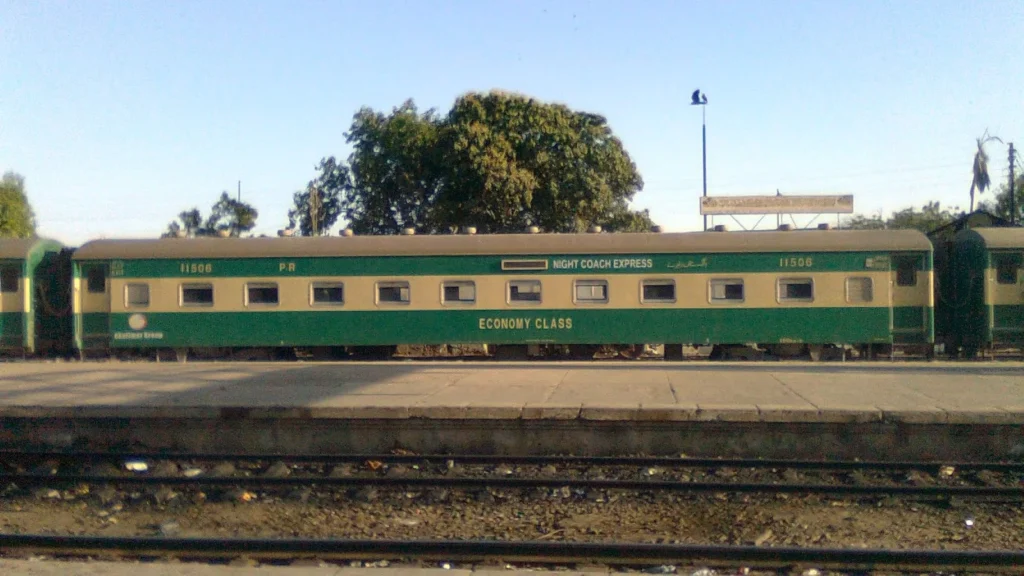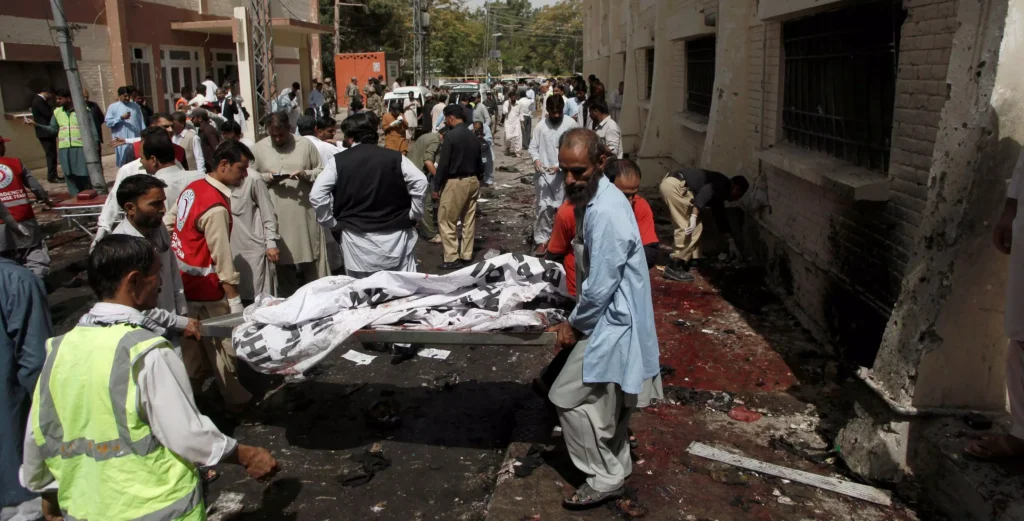Pakistan Passenger Train Hijacked: Introduction
A passenger train traveling through Pakistan’s southwestern Baluchistan province became the target of a violent attack, leading to a hostage crisis involving hundreds of passengers. The incident, which unfolded on the Jaffar Express, has been claimed by the Baluch Liberation Army (BLA), a separatist group operating in the region. The hijacking has heightened concerns over the ongoing insurgency in the area and its broader impact on national security.
Baluch Liberation Army’s Statement on the Attack
According to a statement issued by the BLA, the group forcibly stopped the train by damaging railway tracks, subsequently taking control of the carriages. Reports indicate that six Pakistani military personnel lost their lives during the attack. The BLA spokesperson, Jeeyand Baluch, emphasized that any military intervention would be met with armed resistance and warned of potential repercussions for hostages in case of an offensive by security forces. The statement further asserted that the group carried out the operation to draw attention to their demands for Baluchistan’s independence and to resist what they claim is resource exploitation by the Pakistani state.
This is not the first time that the BLA has executed high-profile attacks. The insurgent group has frequently targeted Pakistani security forces, government institutions, and foreign projects, particularly those linked to the China-Pakistan Economic Corridor (CPEC). The attack on the Jaffar Express underscores the ongoing instability in the region and the challenges in maintaining law and order.
Government and Security Response

Authorities swiftly responded to the crisis, with security personnel reaching the site in the Mushqaf area of the Bolan district. The Baluchistan government has declared emergency measures, with all state institutions mobilized to address the situation. Government spokesperson Shahid Rind confirmed that efforts were underway to resolve the standoff and ensure the safety of the hostages. Military and paramilitary forces have been deployed to contain the situation, while intelligence agencies are working to assess the motivations behind the attack.
In response to the growing threat of insurgent activities, Pakistan has increased military operations in Baluchistan over the past decade. However, such measures have not fully curbed militant attacks. The government has repeatedly emphasized its commitment to national security, yet challenges persist in stabilizing the province. Political analysts suggest that without addressing the root causes of the insurgency, such as economic grievances and regional autonomy concerns, the cycle of violence is likely to continue.
The Baluchistan Insurgency: A Prolonged Conflict
The incident is the latest in a series of attacks attributed to the BLA, which has been engaged in a long-standing conflict with the Pakistani government. The separatist group argues that Baluchistan’s natural resources, including vast gas and mineral reserves, are being exploited without adequate benefits reaching the local population.
Baluchistan, the largest province in Pakistan by land area, holds strategic importance due to its vast resources and deep-sea port in Gwadar. Despite its geographical significance, it remains one of the country’s least populated and economically challenged regions. The ongoing insurgency has frequently targeted government infrastructure, security forces, and foreign investments, particularly those linked to Chinese interests.

Reports indicate that many Baluch nationalist groups share similar grievances, though their methods and objectives may differ. While some factions seek full independence from Pakistan, others advocate for greater political and economic autonomy. The region has witnessed repeated military crackdowns, yet insurgent groups continue to gain traction among sections of the local population, who feel marginalized.
Geopolitical Significance of Baluchistan
Situated in Pakistan’s southwestern region, Baluchistan shares borders with Afghanistan, Iran, and several Pakistani provinces, including Khyber Pakhtunkhwa and Punjab. The province’s location and natural wealth make it a focal point for major regional and international stakeholders. The deep-sea port of Gwadar, developed as part of CPEC, has drawn significant investment from China, making it a crucial economic hub.
The growing presence of Chinese investments in Baluchistan has fueled tensions, with militant groups frequently targeting Chinese projects. Insurgents claim that local populations are not reaping the benefits of these investments, leading to heightened anti-government and anti-foreign sentiments. The Pakistani government, on the other hand, views these projects as vital for national economic growth and infrastructure development.
What Lies Ahead?
As security forces attempt to de-escalate the situation, concerns remain over the safety of the hostages and the broader implications of the attack. The incident underscores the persistent security challenges in Baluchistan, with insurgent groups continuing to assert their demands through armed resistance. International observers have warned that instability in Baluchistan could have wider implications for regional security, particularly given the province’s proximity to Iran and Afghanistan.
With the crisis still unfolding, the coming hours will be crucial in determining whether diplomatic or military measures will lead to a resolution. Authorities remain on high alert, while negotiations or potential operations could dictate the final outcome of this latest episode in Baluchistan’s decades-long conflict. Meanwhile, analysts predict that unless meaningful steps are taken to address Baluchistan’s underlying issues, similar attacks may continue in the future, further complicating Pakistan’s internal security landscape.
The hijacking of the Jaffar Express serves as a grim reminder of the fragile security environment in the region. While military operations may provide temporary relief, a long-term resolution will require engagement with local communities, investment in economic development, and a comprehensive strategy to integrate Baluchistan more effectively into Pakistan’s national framework.


